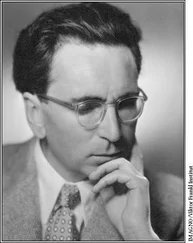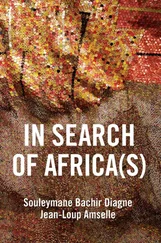1 ...6 7 8 10 11 12 ...27 Years went by before he realized, during an intense bout of fever, that all sorts of disorders and neuroses were hidden behind the great world of numbers. Contrary to what he had initially thought, he soon realized that numbers did not belong to such a simple, unemotional realm. As the doctor bathed Frank’s feverish, delirious body in ice cubes, the young patient’s secret passions were suddenly awakened for the very first time. Frank watched in awe as the numbers fought among themselves with a determination that refused to surrender—just like many of the real-life men he had read about. He studied their varied behavioral patterns: They loved one another within parentheses, they had illicit sex in multiplication, they annihilated one another in subtractions, they built palaces with their Pythagorean solids, they danced from place to place on their Euclidean planes, they dreamed of Utopias with differential calculus, and condemned one another to death in the vortex of square roots. Their hell was far worse than what awaited humans: Rather than languishing somewhere below zero, in the negative numbers—a stupid, infantile simplification—numbers could fall into paradoxes, anomalies, tautologies, and the painful limbo of probability.
From that moment on, numerical inventions were Frank’s best friends. To him, they were the last vestige of real, existential truth. Only those people who were unfamiliar with them—like his father and the doctors—could think they were perverse, opportunistic creatures. They were wrong—numbers didn’t devour the brain or turn life into a sluggish lump of mathematical conjecture. Anyway, Frank hadn’t renounced the laws of man in favor of the dictums of logic; he was just reluctant to abdicate the kingdom of geometry, for that would force him to return, dolefully, to the miserable routine of his home life.
Frank was five years old when he was first seduced by the demons of algebra. His mother had found him in the basement of their New Jersey home, numb from the November frost, mesmerized by the pipes that ran around the perimeter of the room. A thick, frothy saliva bubbled at his lips, and his body had become stiff as a bamboo shoot. After consulting with a neurologist, Frank’s doctor determined that the only medicine was patience. “It’s as if he were sleeping,” he added, unable to explain the state his patient was in, somewhere between hypnotic and autistic. It took a day and a half before Frank fulfilled the doctor’s prediction. Just as the doctor had said, Frank began to paw at his bed rail, like a butterfly trying to break out of its cocoon. His mother, who had maintained a bedside vigil throughout the episode, embraced her son, convinced that her love for him had rescued him from death’s door. Minutes later, however, when he finally began to move his lips, the young boy put this wayward notion to rest. “I was just trying to solve an equation,” he confessed, to everyone’s surprise. Then he smiled: “And I did.”
In his whole life, Frank received only one gift from his father, and the memory of this occasion would always be a special, private treasure for him. He must have been about six years old when, one Sunday afternoon, without any previous warning, the old man got up from his chair and handed his son a dusty black leather box. For years he had kept it hidden away in a closet, like a secret inheritance, the greatest lesson he could pass on to his son. To Frank’s shock and delight, Charles Bacon removed a most curious collection of figurines from this box: dragons, samurai, bonzos, and pagodas, which he insisted upon calling horses, pawns, bishops, and rooks. He also took out a beautiful ebony and marble board which he then placed upon the parlor table.
Frank, at first, didn’t quite understand his father’s momentary euphoria, nor did he comprehend why his father was suddenly so interested in taking the time to show him the way to execute checks, count the horses’ moves, and construct those bizarre, labyrinthine schemes known as castlings. At his age, how could he have possibly known that this game was the one thing that allowed the aging Charles to relive a bit of his former glory? Those harmless, board-game battles, of course, were really nothing more than a simple imitation of the battles he waged among his employees at the department store.
“Very well, then. If you think you understand the rules, how about playing a little game?”
“Yes, sir,” Frank responded quickly.
Despite the fact that this was supposed to be a harmless pastime, Charles focused all his energies on the game; the square chessboard became a battlefield of honor and dignity upon which he delivered martial orders against his little six-year-old son. From the minute they began, Charles weighed every move with painstaking caution, as if he really should have been consulting territorial maps or discussing strategy with the imaginary chiefs of staff who greeted him each day in his equally imaginary military headquarters. It troubled Frank to see his father like that, and he had difficulty concentrating on the baby steps of his chess game. His father’s hands, covered with liver spots and bulging veins, grabbed the chess pieces with thunderous force, as if uncorking giant wine bottles. Every time he made a move Frank feared that the little plaster geishas and mandarins would go exploding into thousands of little pieces. That afternoon, Frank’s father mercilessly beat his son seven times in a row, availing himself of a rather outrageous move known as the “fool’s mate.” Charles’s chess etiquette, of course, forbade him from winning games on the basis of cheap tricks, but if his son wanted to become a real man, he would have to be able to accept legitimate defeat with humility. He needed to learn how to survive in the battlefield of life, to emerge from the trenches and face his enemies. That’s what Charles Bacon thought.
“My mistake,” Charles mumbled upon losing to his son for the first time. He even lit a cigar to display his sporting attitude, and added, “Although you didn’t play too badly yourself.” The next day, however, he didn’t wait for his son to suggest a game. When Frank returned from school—he was about eight years old by now—he found his father setting up the chessboard and carefully wiping down each chess piece as if inspecting a squadron of subordinate officers.
“Shall we begin?” he asked his son. Frank nodded. He tossed his book bag onto the floor and prepared to enter into far more than a mere battle: This was a fight to the death. After several hours of play, it was safe to say that young Frank had outfoxed his father, winning the first, third, fourth, and fifth games. The befuddled Charles managed to take the second and the sixth, and he did have the consolation of winning the final round, at which point he decided that it was rather late and that he had other, more important things to do.
That day, Frank learned the meaning of the words Pyrrhic victory firsthand, thanks to his father’s rather typical display of self-indulgence. Not long after, Charles suffered a series of misfortunes, which would fuel his bitterness and aggravate the chronic depression that set in months later. After Frank won the game, he saw the impotent look on his father’s face and couldn’t help savoring this vindication. But his father’s temperament would not permit this kind of humiliation. After only one more year of chess games, in which his percentage of losses grew higher than that of his son, Charles simply decided not to play against Frank anymore. A few months after that, he died of a heart attack.
Before he was six years old, Frank’s name never bothered him. His mother always called him Frank or Frankie; it was her way of trying to inject a bit of the New Jersey spirit into the boy. Since the death of Frank’s father, nary a mention was made of that awful “Percy” which had found its way onto his baptismal certificate. No, it only appeared on the most official of documents, and then only as P , like some kind of scarlet letter that he prayed no one would ask him about. But in school everything changed. His first-grade teacher was the first to notice:
Читать дальше












